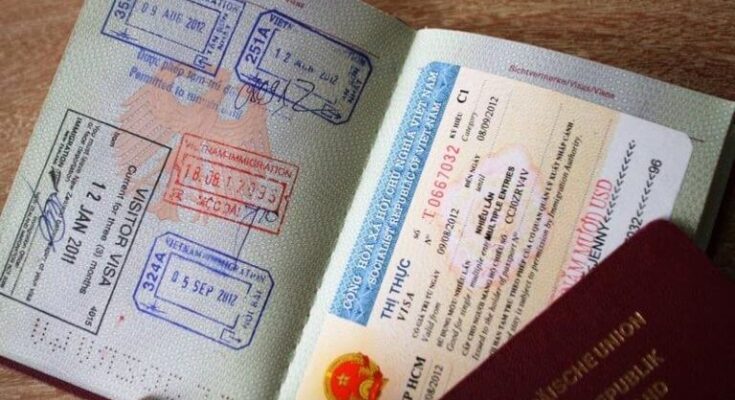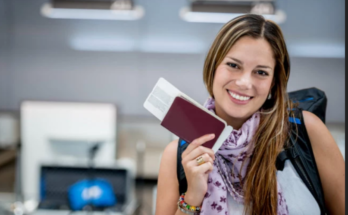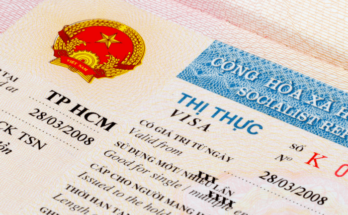Vietnam is a popular destination for travelers from all around the world, including Iraqi citizens. If you are an Iraqi passport holder planning to visit Vietnam, it’s essential to familiarize yourself with the requirements, application process, and other crucial details regarding obtaining a Vietnam visa. This comprehensive guide will provide you with detailed information on everything you need to know about Vietnam visa requirements, the application process, available visa types, fees, processing time, necessary documents, options for visa issuance, validity, extensions, as well as valuable tips and advice specifically tailored for Iraqi citizens.

Table of Contents
Vietnam Visa Requirements for Iraqi Citizens
Before diving into the application process, it’s crucial to understand the specific requirements for Iraqi citizens applying for a visa to Vietnam. The general requirements for obtaining a Vietnam visa are as follows:
- Passport: Your passport must be valid for at least six months beyond your intended stay in Vietnam. It should also have at least two blank pages for visa stamping purposes.
- Application Form: You need to complete and submit a visa application form accurately and truthfully. The form can usually be obtained online or at the Vietnamese embassy/consulate.
- Photographs: You will need two recent passport-sized photographs that meet the specifications set by the Vietnam immigration authorities. Generally, the dimensions are 4×6 cm, with a white background.
- Visa Approval Letter (applicable in certain cases): Depending on the type of visa and method of application, you may require a visa approval letter issued by the Immigration Department of Vietnam, which will be explained in detail later.

Application Process for Vietnam Visa for Iraqis
Iraqi citizens have two primary options for obtaining a Vietnam visa: applying through the Vietnamese embassy/consulate or applying for a Visa on Arrival (VOA). Let’s explore these options in more detail:
1. Applying through the Vietnamese Embassy/Consulate
To apply for a Vietnam visa through the Vietnamese embassy or consulate, follow these steps:
- Contact the Embassy/Consulate: Get in touch with the nearest Vietnamese embassy or consulate in Iraq to obtain detailed information about the application requirements, procedures, and appointment scheduling, if necessary.
- Gather Required Documents: Prepare all the necessary documents, including your passport, completed application form, photographs, and any additional documents specified by the embassy/consulate.
- Submit Application: Submit your application and required documents to the embassy/consulate either in person or via mail, depending on their specific guidelines.
- Pay Visa Fee: Pay the visa fee as instructed by the embassy/consulate. The fee amount may vary based on the type of visa you are applying for and the processing time you choose.
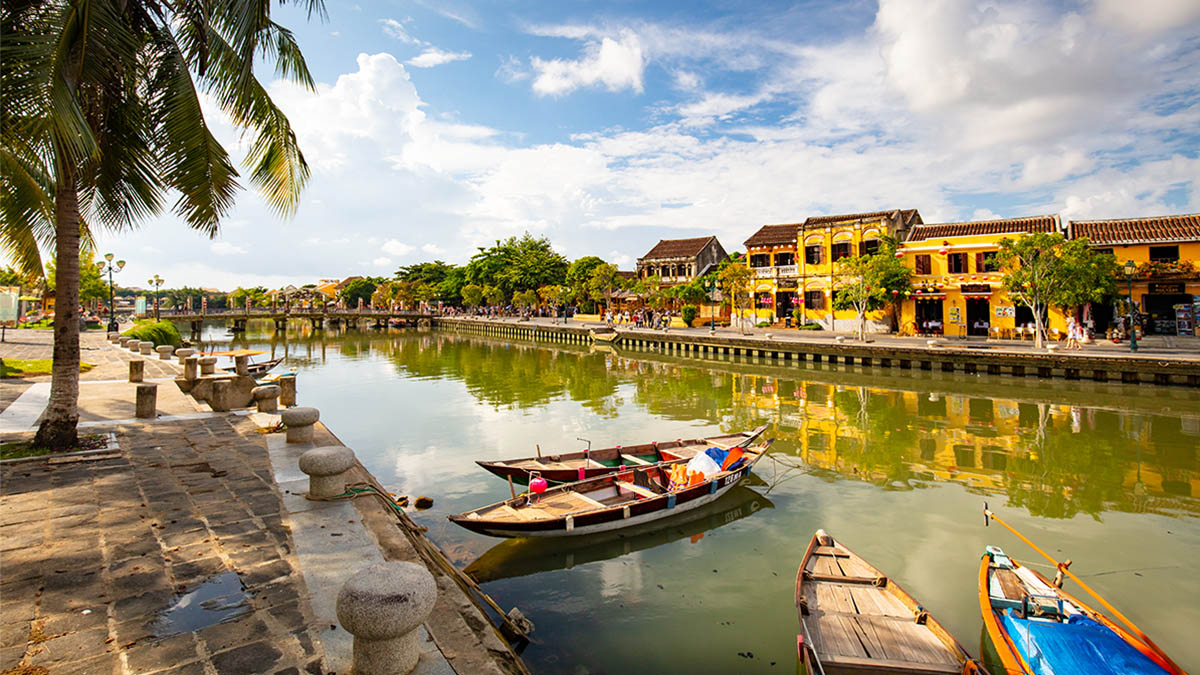
2. Applying for Visa on Arrival (VOA)
Vietnam Visa on Arrival (VOA) is a convenient option for Iraqi citizens traveling to Vietnam by air. Here’s how the process works:
- Online Application: Visit a reputable travel agency or an official website that provides VOA services for Vietnam. Complete the online application form by providing accurate personal and travel information.
- Visa Approval Letter: After submitting the online application and paying the service fee, you will receive a visa approval letter via email within a specified timeframe, usually 2-3 business days. This letter is issued by the Immigration Department and allows you to board your flight to Vietnam.
- Print Documents: Print the visa approval letter and prepare two passport-sized photos (as per specifications) and the entry/exit form (also provided with the approval letter).
- Arrival in Vietnam: Upon arrival at one of Vietnam’s international airports (Hanoi, Ho Chi Minh City, Da Nang, or Nha Trang), proceed to the Visa on Arrival counter. Submit your passport, visa approval letter, photos, and completed entry/exit form.
- Visa Stamping: After reviewing your documents, the immigration officers will stamp your visa into your passport. Pay the visa stamping fee in cash (USD) as per the current regulations.
Types of Vietnam Visas Available for Iraqi Passport Holders
Vietnam offers various types of visas depending on the purpose and duration of your stay. Here are some commonly issued visas:
- Tourist Visa (DL): This visa allows Iraqi citizens to visit Vietnam for tourism purposes, such as sightseeing, visiting friends or relatives, or participating in cultural activities. The validity is typically 30 days, extendable for a longer stay.
- Business Visa (DN): If you plan to engage in business-related activities in Vietnam, such as attending conferences, meetings, or seeking investment opportunities, you will need a business visa. The validity can vary from one month to one year, with single or multiple entries.
- Work Visa (LD): If you intend towork in Vietnam, you will need a work visa. This type of visa requires sponsorship from a Vietnamese employer or organization and involves additional documentation and processes.
- Student Visa (DH): Iraqi students accepted into Vietnamese educational institutions can apply for a student visa. It allows them to pursue their studies in Vietnam for the duration of their academic program.
- Transit Visa: If you are transiting through Vietnam to another destination and will stay in the country for less than 72 hours, you may be eligible for a transit visa. This visa is typically granted to individuals traveling by air and has specific conditions.
It’s important to determine the purpose of your visit to Vietnam and choose the appropriate visa type accordingly. The requirements and application process may vary slightly for each visa category, so be sure to check the specific guidelines provided by the embassy/consulate or VOA service provider.
Vietnam Visa Fees for Iraqi Nationals
The fees for Vietnam visas can vary based on several factors such as the type of visa, processing time, and method of application. Here is a general overview of the fees involved:
- Embassy/Consulate Visa Fees: When applying through the Vietnamese embassy or consulate, the fee structure may differ depending on the embassy location and the type of visa you are applying for. Typically, there is a fixed fee for single-entry visas and an additional fee for multiple-entry visas. Fees may also vary based on the processing time you choose.
- Visa on Arrival Fees: For Visa on Arrival, you need to pay two separate fees: the service fee (paid online during the application process) and the visa stamping fee (paid in cash upon arrival at the airport). The service fee covers the issuance of the visa approval letter, while the stamping fee is paid to the immigration authorities for the visa stamp in your passport.
It’s important to note that the fees mentioned here are subject to change, and it’s always advisable to check the latest fee structure at the time of your application.
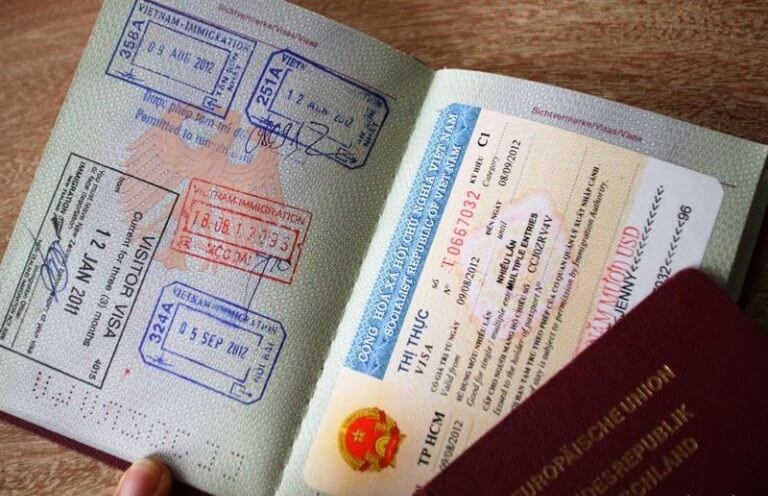
Vietnam Visa Processing Time for Iraqis
The processing time for a Vietnam visa can vary depending on the method of application and the type of visa you are applying for. Here’s a general estimate of the processing time for each option:
- Embassy/Consulate Visa: When applying through the Vietnamese embassy or consulate, the processing time can range from a few business days to several weeks, depending on the embassy’s workload and their specific procedures. It’s recommended to apply well in advance to allow for any potential delays.
- Visa on Arrival: The processing time for Visa on Arrival is typically quicker compared to the embassy/consulate visa. After submitting your online application and payment, you can expect to receive the visa approval letter via email within 2-3 business days. However, it’s essential to consider this timeframe when planning your trip to Vietnam.
It’s crucial to note that unforeseen circumstances or peak travel seasons may cause delays in visa processing. Therefore, it’s advisable to apply for your visa well ahead of your intended travel dates to avoid any last-minute complications.
Documents Needed for Vietnam Visa Application by Iraqis
When applying for a Vietnam visa, you will need to provide certain documents to support your application. Here is a list of commonly required documents:
- Passport: Your original passport with a minimum validity of six months beyond your planned stay in Vietnam.
- Completed Application Form: Fill out the visa application form accurately and legibly. The form can be obtained from the Vietnamese embassy/consulate or completed online for Visa on Arrival.
- Passport Photos: Prepare two recent passport-sized photos that meet the specified requirements (dimensions, background color, etc.).
- Visa Approval Letter (for Visa on Arrival): If you are applying for Visa on Arrival, you will need to carry the visa approval letter received via email.
- Additional Supporting Documents: Depending on the type of visa you are applying for, you may need to provide additional documents such as a letter of invitation from a Vietnamese sponsor, hotel reservations, flight itineraries, proof of financial means, or educational institution acceptance letters (for student visas).
It’s important to check the specific requirements provided by the embassy/consulate or VOA service provider to ensure you have all the necessary documents ready before submitting your application.
Vietnam Visa on Arrival vs. Vietnam Embassy Visa for Iraqis
Iraqi citizens have the option to choose between Visa on Arrival and applying through the Vietnamese embassy/consulate. Here’s a comparison of these two methods:
Vietnam Visa on Arrival
- Convenience: Visa on Arrival is a convenient option, especially for those traveling by air, as it allows you to apply online without visiting the embassy/consulate in person.
- Flexibility: You can apply for a Visa on Arrival from anywhere with an internet connection, saving you time and effort.
- Qu- **Quick processing: The processing time for Visa on Arrival is generally faster compared to the embassy/consulate visa, with the visa approval letter usually being issued within 2-3 business days.
- Cost-effective: Visa on Arrival can be a cost-effective option, as the service fees are typically lower compared to the embassy/consulate visa.
Vietnam Embassy Visa
- Direct contact: Applying through the Vietnamese embassy/consulate allows you to have direct contact with the consular staff, where you can seek clarification and guidance throughout the application process.
- Suitable for land or sea entry: If you plan to enter Vietnam by land or sea, applying directly at the Vietnamese embassy/consulate is the recommended option, as Visa on Arrival is applicable only for air travel.
- Clear requirements: The embassy/consulate will provide specific guidelines and requirements for visa applications, ensuring that you submit all the necessary documents correctly.
It’s important to consider your travel plans, convenience, and preferences when choosing between these two methods. Evaluate the pros and cons of each option to make an informed decision.
Validity and Duration of Stay for Vietnam Visa for Iraqis
The validity and duration of stay for Vietnam visas granted to Iraqi citizens can vary depending on the type of visa and the purpose of travel. Here’s a general overview:
- Tourist Visa: A tourist visa (DL) is typically valid for 30 days, allowing for a single entry into Vietnam. However, if you plan to stay longer, you have the option to apply for a visa extension once you are in Vietnam. Extensions can usually be obtained for an additional 30 days or more, subject to the approval of the Vietnam Immigration Department.
- Business Visa: Business visas (DN) can have varying validity periods, ranging from one month to one year, with options for single or multiple entries. The duration of stay for each entry is typically specified in the visa, and extensions can be obtained if necessary.
- Work Visa: Work visas (LD) are granted based on the duration of the employment contract or work assignment in Vietnam. The validity and duration of stay will depend on the terms of your work agreement and the sponsorship provided by your employer or organization.
- Student Visa: Student visas (DH) are usually valid for the duration of the academic program or course you are enrolled in. It allows you to stay and study in Vietnam during that period.
It’s important to note that overstaying your visa beyond the permitted duration can result in fines, penalties, or other legal consequences. To avoid any complications, make sure to comply with the visa validity and follow the necessary procedures for extensions if needed.
Vietnam Visa Extension for Iraqi Travelers
If you wish to extend your stay in Vietnam beyond the initially granted period, you have the option to apply for a visa extension. Here’s what you need to know:
- Eligibility: Visa extensions are generally available for tourist and business visas. Other types of visas, such as work or student visas, may require different procedures or permits for extended stays. Consult with the Vietnam Immigration Department or a reputable travel agency for specific information based on your visa type.
- Application Process: To extend your visa, you must submit an application for an extension at the nearest Immigration Office or through a registered travel agency in Vietnam. The application should be made before your current visa expires.
- Documentation: Prepare the necessary documents for the extension, which may include your passport, visa copy, completed application form, passport-sized photos, and payment of the extension fee. Additional documents, such as proof of accommodation or financial means, may also be required.
- Processing Time: The processing time for visa extensions can vary, but it typically takes around 5-7 business days. It’s advisable to apply well in advance to allow for any unforeseen delays.
Remember that visa extensions are subject to approval by the Vietnam Immigration Department. It’s essential to comply with the immigration regulations and follow the procedures accurately to ensure a smooth extension process.
Tips and Advice for Obtaining a Vietnam Visa as an Iraqi Citizen
Here are some valuable tips and advice that can help Iraqi citizens obtain a Vietnam visa smoothly:
- Apply in Advance: Start the visa application process well ahead of your planned travel dates to avoid any last-minute complications or delays.
- Research Visa Types: Determine the purpose of your visit and choose the appropriate visa type accordingly. Each visa category has specific requirements and conditions, so understanding them in advance will simplify the application process.
- Check Validity Requirements: Ensure that your passport meets the validity requirements of at least six months beyond your intended stay in Vietnam. If necessary, renew your passport before applying for the visa.
- Prepare Required Documents: Gather all the necessary documents as per the guidelines provided by the embassy/consulate or VOA service provider. Ensure that your application formis accurately and truthfully filled out, and your passport-sized photos meet the specified requirements.
- Follow Instructions Carefully: Pay close attention to the application procedures and guidelines provided by the embassy/consulate or VOA service provider. Any mistakes or missing information can lead to delays or rejection of your visa application.
- Consider Visa on Arrival for Air Travel: If you plan to arrive in Vietnam by air, Visa on Arrival can be a convenient and efficient option. Make sure to choose a reputable VOA service provider and apply online in advance.
- Be Aware of Peak Seasons: During peak travel seasons, such as holidays or festivals, visa processing times may be longer. Therefore, it’s advisable to apply well in advance and consider any potential delays.
- Stay Informed: Keep yourself updated with the latest immigration regulations and visa requirements for Iraqi citizens traveling to Vietnam. Check official sources or consult with the Vietnamese embassy/consulate for the most accurate and up-to-date information.
- Respect Immigration Laws: Comply with all immigration laws and regulations during your stay in Vietnam. Ensure that you do not overstay your visa or engage in any activities that violate the terms and conditions of your visa.
- Seek Professional Assistance if Needed: If you are unsure about the visa application process or require guidance, consider seeking assistance from a reliable travel agency or consulting services specializing in Vietnam visas. They can provide expert advice and support throughout the application process.
By following these tips and staying well-informed, Iraqi citizens can successfully obtain a Vietnam visa and enjoy their visit to this beautiful country.

